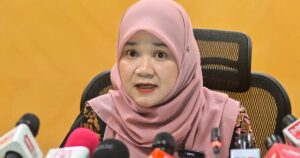
KATHMANDU: Nepal Prime Minister K.P. Sharma Oli resigned on Tuesday, his aide said, as anti-corruption demonstrators defied an indefinite curfew and clashed with police, a day after 19 people died in violent protests triggered by a social media ban.
Oli’s government lifted the social media ban after protests turned violent, killing 19 and injuring more than a 100 after police fired tear gas and rubber bullets at protesters trying to storm parliament on Monday.
The unrest is the worst in decades in the poor Himalayan country that is wedged between India and China and has struggled with political instability and economic uncertainty since protests led to the abolition of its monarchy in 2008.
“The PM has quit,” Oli’s aide Prakash Silwal told Reuters, a move that plunges the country into fresh political uncertainty.
Earlier on Tuesday, Oli had called a meeting of all political parties, saying violence is not in the interest of the nation and “we have to resort to peaceful dialogue to find solutions to any problem”.
But anger against the government showed no signs of abating, as protesters gathered in front of parliament and other places in the capital Kathmandu, in defiance of an indefinite curfew imposed by authorities.
The protesters set fire to tyres on some roads, threw stones at police personnel in riot gear and chased them through narrow streets, while some looked on and shot videos of the clashes on their mobile phones as thick black smoke rose to the sky.
Hundreds of people from some towns located near the India-Nepal border had started marching towards Kathmandu to support the protesters, one of the protesters told Reuters by phone.
Witnesses also said that protesters were setting fire to the homes of some politicians in Kathmandu, and local media reported that some ministers were plucked to safety by military helicopters.
Reuters could not immediately verify the information.
“We are still standing here for our future … We want this country corruption-free so that everyone can easily access education, hospitals, medical (facilities) … and for a bright future,” protester Robin Sreshtha told Reuters TV.
Arrival of planes from the southern side at Kathmandu airport, Nepal’s main international gateway, was closed because of poor visibility due to the smoke from fires set by protesters in areas nearby, aviation authority official Gyanendra Bhul said.
Organisers of the protests, which spread to other cities in the Himalayan country, have called them “demonstrations by Gen Z”, driven by young people’s widespread frustration with the government’s perceived lack of action to tackle corruption and boost economic opportunities.






